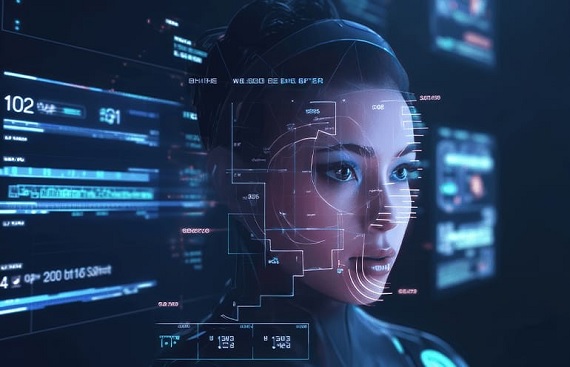Synthetic media, encompassing AI-generated or manipulated content like images, videos, audio, and text, is rapidly transforming numerous aspects of our lives. This technology holds immense potential, offering exciting opportunities across various sectors, but simultaneously poses significant challenges concerning ethics, security, and societal well-being.
Opportunities and Applications:
Synthetic media is revolutionizing creative content production. It streamlines content creation, enhances output quality, lowers production costs, and democratizes creative outputs. CGI in films, AI-written music, and AI-generated images for graphic design showcase this potential. Adobe's generative fill feature in Photoshop exemplifies how AI can automatically generate content based on existing image data, expanding creative possibilities.
Personalization is another key benefit. Synthetic media enables tailored consumer journeys with personalized recommendations based on individual preferences, such as personalized landing pages and "how-to" videos. Chatbots and immersive learning experiences further enhance this personalization, replicating real-world scenarios for training and education. This extends to personalized finance, offering AI-generated content for financial products, and personalized tools for accessibility, such as speech synthesis for those losing their voice.
Synthetic avatars, digital representations modeled after real humans, can improve consumer experiences in entertainment, work, and even grief counseling. In healthcare, synthetic media is used in medical training simulations, allowing professionals to practice on virtual patients. David Beckham speaking nine languages fluently in a malaria awareness campaign exemplifies the power of expression swap models. Scientists also suggest deepfake audio can restore speech for those who have lost it.
Synthetic data, AI-generated data that mimics real-world data, enhances AI model accuracy and representativeness. It can ensure AI models are appropriate for diverse scenarios without using real individuals' data, particularly beneficial when real-world data is limited or biased. Moreover, synthetic media can improve digital and media literacy skills across different subjects.
Challenges and Risks:
The proliferation of synthetic media also introduces substantial challenges. One of the most concerning is the potential for harmful and illegal content creation. Synthetic media can facilitate the mass production and distribution of harmful content, including non-consensual sexual images, child sexual abuse material, and hate speech. The spread of such content can inflict severe harm on individuals and society.
Misinformation and disinformation are significant risks. Deepfakes, realistic but fabricated videos and audio recordings, can be used to manipulate public opinion, disrupt political processes, and damage reputations. The weaponization of deepfakes in disinformation campaigns, such as the pro-China "spamouflage" campaign using AI-generated news anchors, highlights this danger. The increasing difficulty in distinguishing between real and synthetic media erodes trust in authentic content and established information sources.
Psychological impacts are another concern. Beyond intentionally harmful content, some synthetic media can have secondary psychological effects, particularly on vulnerable individuals. The rise of non-consensual fake pornography and scams jeopardize individuals' reputations and financial security.
Ethical issues abound, including plagiarism, ownership rights, and transparency in disclosing AI involvement in content creation. Determining accountability when AI systems produce harmful content is also a complex challenge.
Societal Impact and Mitigation Strategies:
The societal impact of synthetic media is far-reaching. It can fuel political polarization, erode trust in media, and undermine democratic processes. The increasing prevalence of sophisticated generative AI models disrupts conventional knowledge acquisition processes and introduces complexities to information environments.
Addressing these challenges requires a multi-faceted approach. Developing robust detection methods for synthetic content is crucial. Watermarking and labeling content can increase transparency and help users identify AI-generated material.
Regulatory collaboration is essential to ensure effective individual and market protection while enabling innovation and economic growth. A holistic effort from regulators, government, academia, industry, and civil society is needed. Legal frameworks must adapt to address emerging threats, balancing free expression with protection from harm. Potential reforms include specific criminal offenses for malicious deepfake creation and distribution, and stronger obligations for platform providers to detect and remove deepfakes.
Promoting media literacy and critical thinking skills is vital to help individuals discern between real and synthetic content. Transparency and disclosure are key principles for responsible development, creation, and sharing of synthetic media. Consent, especially in creating content involving individuals, is paramount.
Conclusion:
Synthetic media presents both unprecedented opportunities and significant risks. By understanding its capabilities and challenges, fostering collaboration, and developing appropriate safeguards, we can harness its benefits while mitigating its potential harms, ensuring a future where synthetic media contributes positively to society. The responsible development and application of AI and synthetic media require ongoing interdisciplinary research, informed public discourse, and collaborative efforts.




















